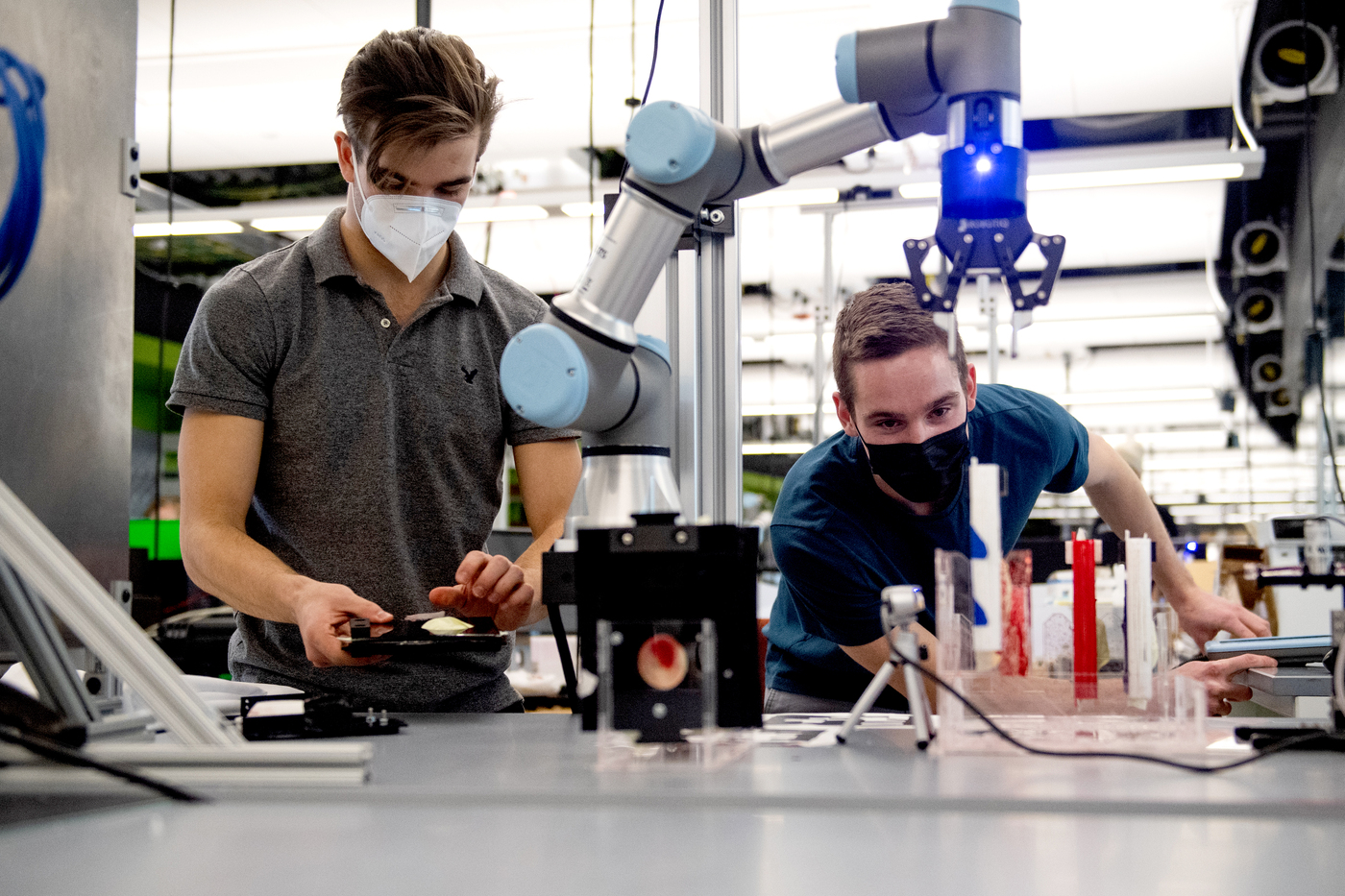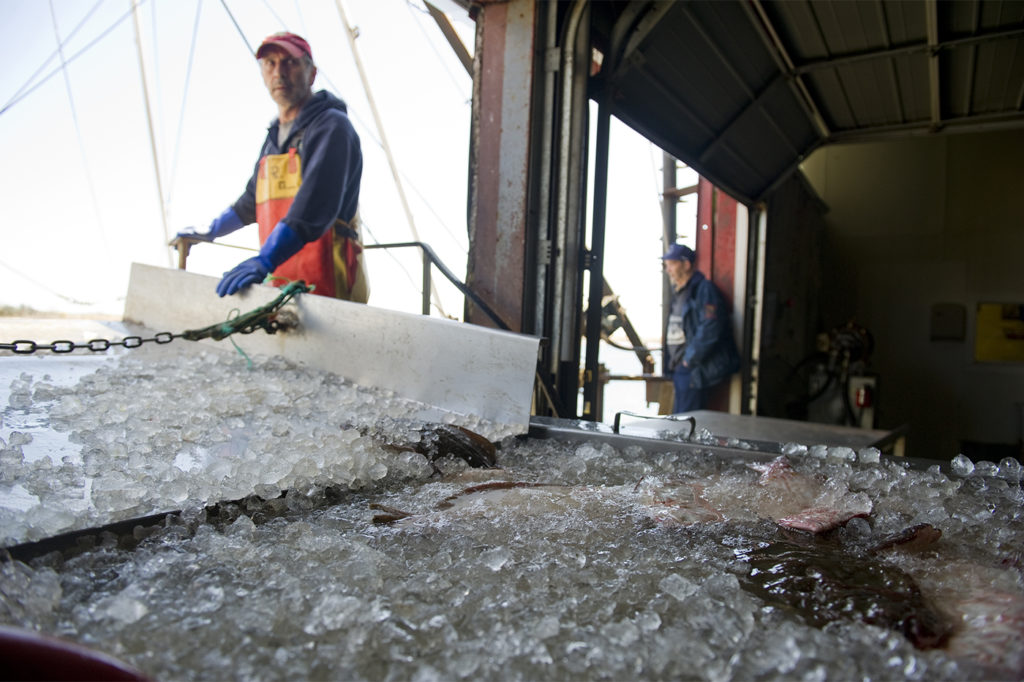
CRISP/CROSS
CRISP/CROSS
New England is known for being an excellent source of lobster and other seafood. But while fishing is done locally, much of the processing is outsourced to other countries. A lack of local manpower means scallops caught off the coast of Massachusetts might travel to China or India for processing before they appear on your plate at a restaurant in Boston.
Northeastern professor Taskin Padir is hoping to change that. He was selected to lead a new project to bring collaborative robots developed at the university into processing plants at America’s busiest fishing port, located in New Bedford, Massachusetts. The goal, he said, is to increase production and efficiency, keep workers safe, and stimulate local job growth.
“We want to be able to process more fish locally so that we can generate more jobs and import less,” said Padir, an associate professor of electrical and computer engineering.
Padir envisions that the robots will first be tasked with testing the quality of fish. Workers now pick up fish and decide whether it meets food quality standards, feeling for just the right amount of squishiness. Padir’s lab at Northeastern has been developing algorithms for a robotic hand called Sawyer, which could be programmed to identify the ideal fish texture and softness with the goal of helping workers process more fish faster.
Affiliated Faculty: Taskin Padir
